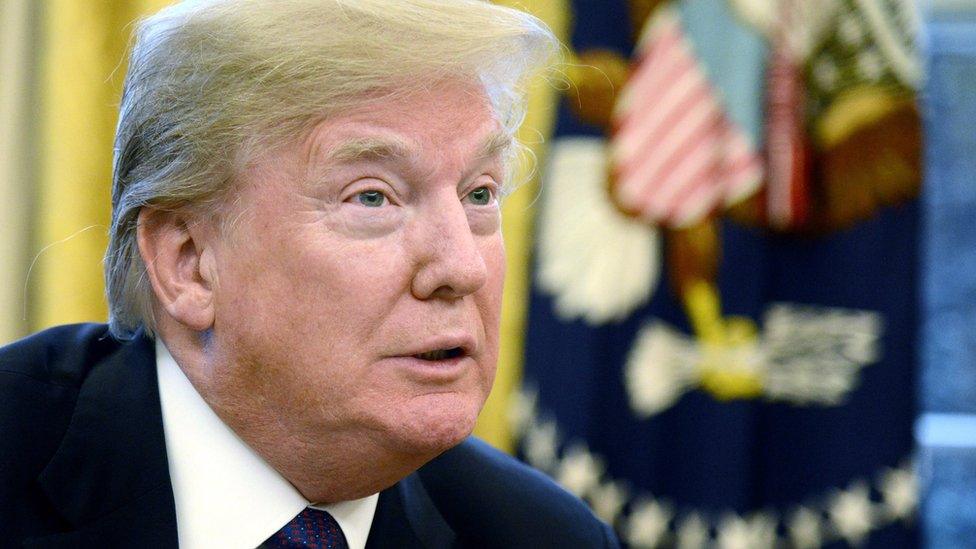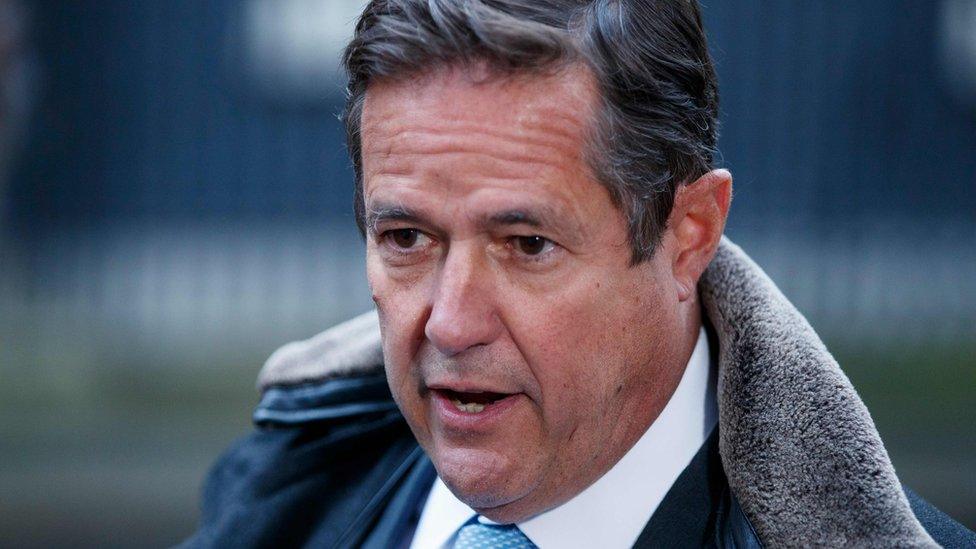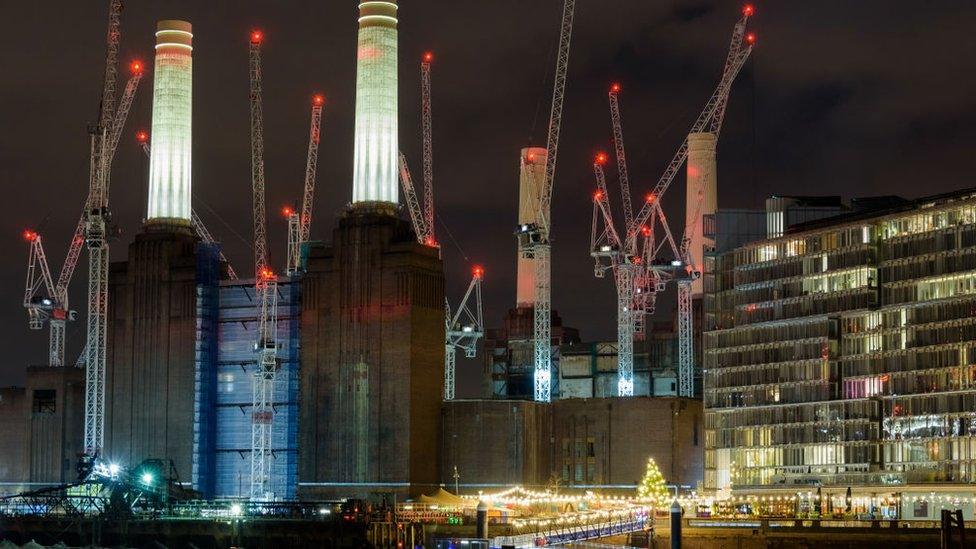Does the world economy look too good?
- Published

There are two types of people at this year's Davos. Those who think the global outlook looks good and those who think it looks too good.
Axel Weber, the chairman of investment bank UBS summed it up nicely when he told a Davos audience that things are buoyant - too buoyant.
In one camp are the people who look at the real economy. According to the IMF, the world economy is enjoying its biggest period of concerted global growth since 2010.
All the major engines of economic activity are firing at the same time. The United States, China, India are growing strongly and with the exception of the UK, even the European Union is stirring from a decade of slumber.
All good news for investment and jobs and the overall tone among economists is decidedly upbeat.
But then there are the Cassandras who predict that the seeds of the next crisis are being sown as we speak.
These are the types who look at financial markets. They say all the good news we are hearing now has already been reflected in stock markets that have boomed in the last year.
They fear that with growth and inflation on the rise, helped by an extra shot of rocket fuel in the tank courtesy of Donald Trump's massive corporation tax cuts (down from 35% to 21%), growth and demand will push up prices.

Donald Trump has pushed ahead with cuts to corporation tax
They say that central banks - and in particular the US Federal Reserve - will have no choice but to speed up the process of reversing the biggest financial stimulus programme of all time.
Trillions of dollars, pounds euros and yen have been poured into the financial system over the last decade and it is still happening.
As Huw van Steenis from Schroders has said - over $2 trillion has been pumped into the international system in the last year alone. That is way too many drugs for a healthy economic patient.
Barclays chief executive Jes Staley pointed out to a Davos audience, the mismatch between the current rosy economic climate and the level of world interest rates.
"We've got 4% global growth but we've got a monetary policy that's still in the depression era," he said.
Harvard University professor Kenneth Rogoff went further. "If interest rates go up even modestly, halfway to their normal level you will see a collapse in the stock market," he said.
What matters to most people around the world is the real economy - jobs, wages and growth - not the financial markets.
But as we learned in 2008, a financial market collapse can quickly cause recessions as banks rein in their lending depriving people and businesses of the credit they need to spend and invest.

Barclays boss Jes Staley warned: "Hold onto your hats"
There are others in Davos who think that even if we have a major stock market fall, that wouldn't necessarily kill off growth.
The chief executive of a major asset manager pointed me to the example of 1987 when the stock market suffered a 20% fall but the economy still grew.
Michael Corbat from Citigroup said the banks were much more solid now and that their lending would not necessarily be impaired if financial markets fell.
That is also the position of the Bank of England who test banks' ability to lend in very adverse situations.
Nevertheless there are plenty of people worried that the tap of cheap money is being gradually turned off right around the world.
If booming global growth means those turns are not gradual, then in the words of Barclays boss Jes Staley: "Hold on to your hats".
- Published15 January 2018

- Published12 January 2018